
At African Drone Forum, Flying Labs Host Drone Training for Students
February 27th, 2020

By Yussuf Said Yussuf, Tanzania Flying Labs
From February 5-7, Rwanda played host to the 2020 African Drone Forum (ADF), bringing together people from different parts of the world to learn, share, and compete on drone technology—mainly cargo and mapping drones. At the end of the event, each participant contributed their portion and made it happen.
The Rwandan government knows the importance of preparing the next generation to understand and use technology, and it was decided to provide a training session for the students of the Integrated Polytechnic Regional College (IPRC) in Karongi District.
The IPRC provides several engineering disciplines such as electrical, mechanical, and information technology. A group of 45 students from various disciplines gathered to learn how to build and fly their drones. As one of the main objectives of the Flying Labs is to share knowledge, it was given the responsibility to conduct and lead the training in collaboration with the local companies, such as Locus Dynamics and Leapr Labs, with help from famous drone company DJI and Uhuru Labs of Tanzania.
Over five days, the students participated in different activities. Although the students were most curious about how to build a drone, one week is inadequate for the task, but it's crucial to plant a seed and build a strong foundation towards that goal during this time.
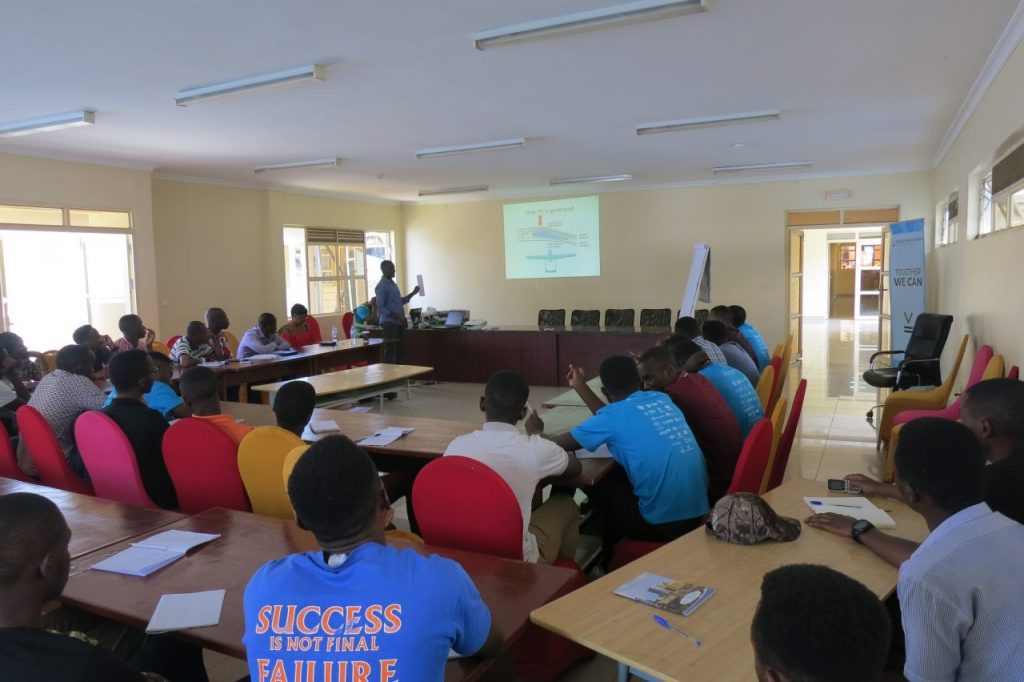
After the first day of training, students understood the fundamentals of a drone: what it is, how it's identified, the different models available for purchase, and, finally, use cases and applications for each. Since this was their first training, we narrowed down to rotary drone models, so that we could prevent confusion and could access a unit for practice. At the end of the session, students had a better understanding of where they should start thinking before building their drones.
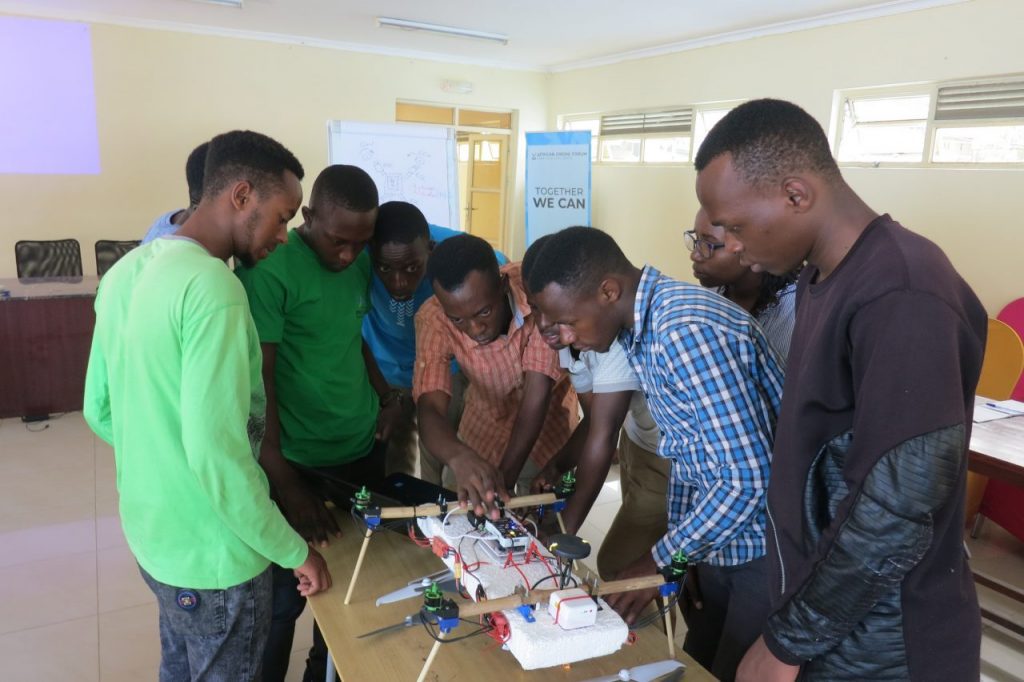
The following day, students learned about the anatomy of a drone from the local enterprise engineering personnel, supported by a colleague from OMDTZ who brought his uncovered drone made from bamboo to show the students its different parts and how those parts work together. The students had a fantastic time and were motivated and inspired., They developed a deeper understanding of the preparation necessary before the actual development. To conclude the day, students watched a demonstration, and some students even started to learn how to control the drone manually.
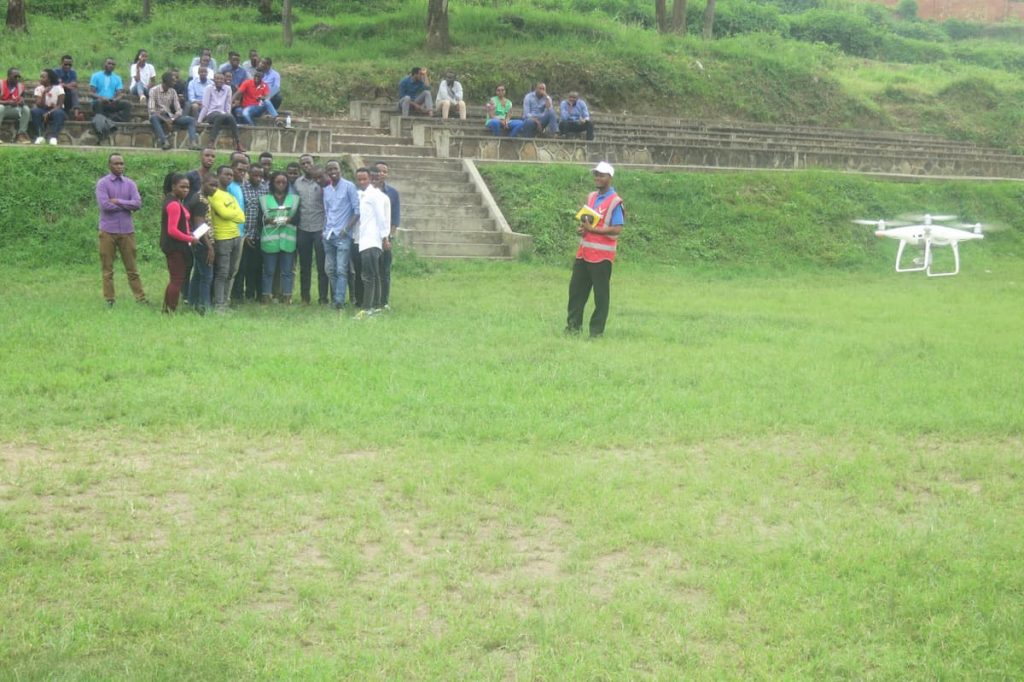
On the third day, it was time to fly. We make sure that every student can fly a drone, doing simple movements, getting them comfortable with the controls, and helping them understand the responsibility when piloting a drone. We taught them the safety guidelines for operating a drone, including filling their checklist, performing a risk assessment, and making sure that safety is never compromised.
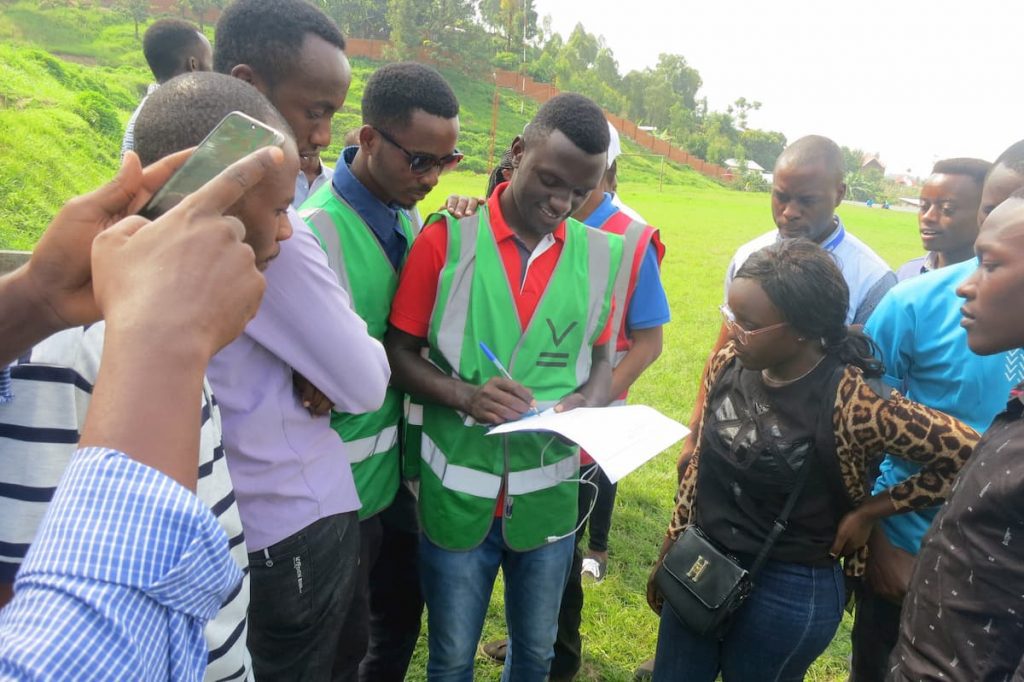
Students also paid a visit to the Drone Port, located in the Palm Beach resort. While there, they met other teams, saw different models of available drones, learned about the work of the Meteorological Department, and how the new Unified Traffic Management (UTM) works.
Students also had an opportunity to ask questions directly to the teams and other experts and witnessed for the first time how VTOL drones work. Thanks to all groups (Hojung Solution (from Korea), Avy, Phoenix Wing, GermanWings, and others) for volunteering their time to spend with students.
By the time the students returned to their campus, they had learned how to program a drone for mapping, understood how cargo drone delivery works after visiting the Droneport, and they planned and executed their missions to learn how drones operate in the field. Finally, students learned how a computer with photogrammetry software could stitch images together to create an ortho product. They performed the process manually in their group and also saw how the computer does the same automatically.
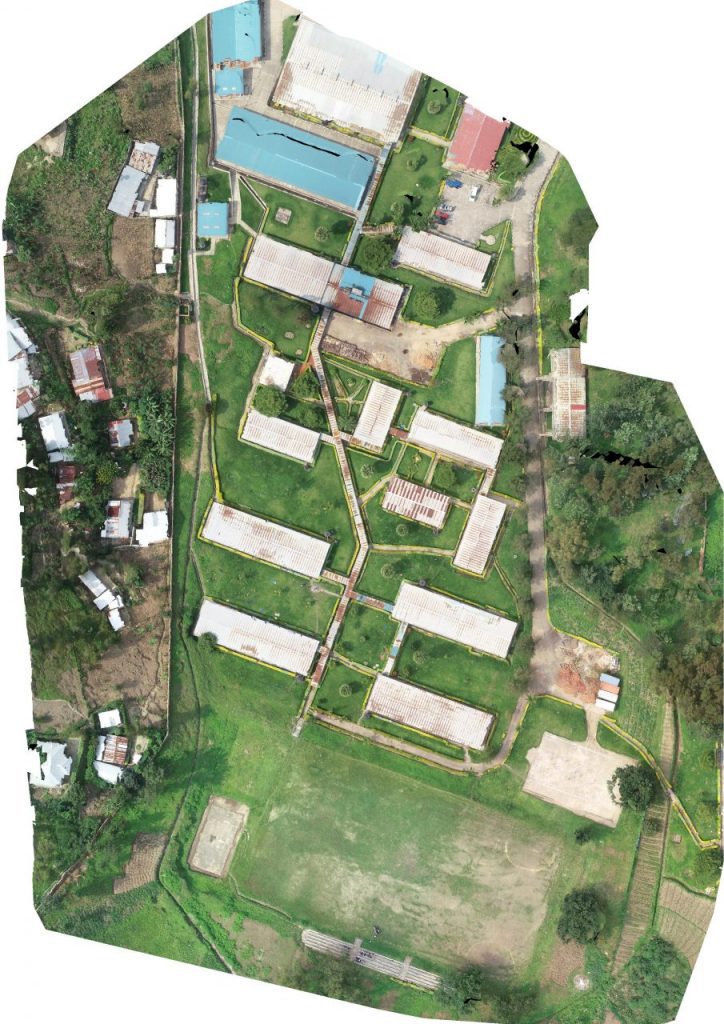
Drone flight is only one side of the coin. The other side is how the data they generate can make a difference in our lives. We showed the students this on their last day when they used the maps to identify buildings around their campus and provide detailed information about each building, such as classes, hostels, and others. For this activity, they learned how drone data could help to identify features more quickly and the importance of validating that data. Finally, each participant received a Certificate of Participation as their recognition.
Flying Labs got new experience and continued to show the power of local just in one aspect. For example, "Local Language" spoken by Local partners was beneficial when partners want to clarify more, and students wanted to ask more questions. The Flying Teams who participated in Lake Kivu Challenge (including Vonlasi, Wingcopter, and Venturi) agreed to pay a visit to the IPRC campus for the first two days. They shared their stories of how they started and grew, which intrigued and inspired the students. It was a moment when all teams emphasized the importance of working as a team across disciplines to achieve their goals.
We are grateful to every single person/organization who contributed in any way to the success of the Training session to the young, energetic students of IPRC Karongi, to mention few of them like Government of Rwanda as a whole, Rwanda Airport Company, Rwanda Civil Aviation Authority, and the WorldBank.
Recent Articles

